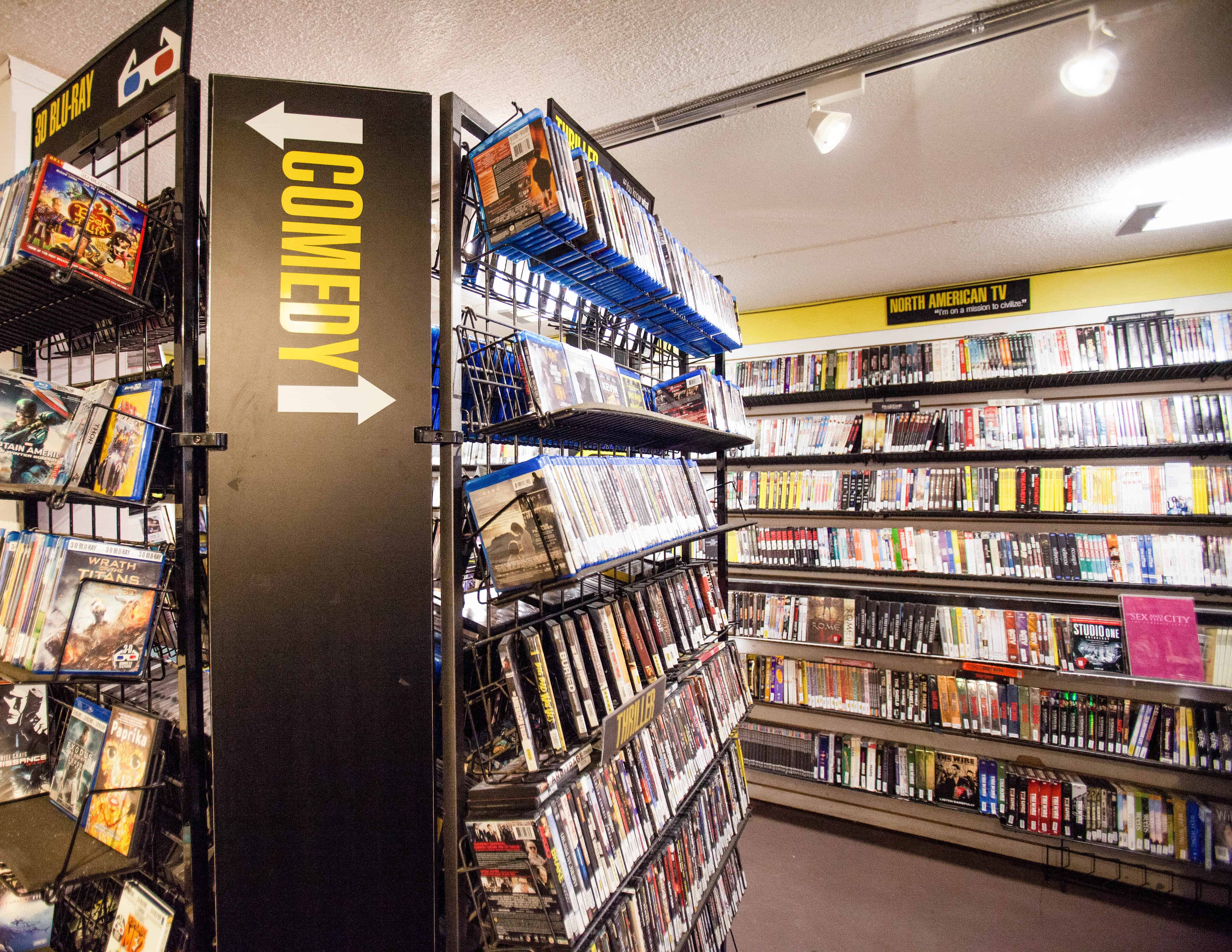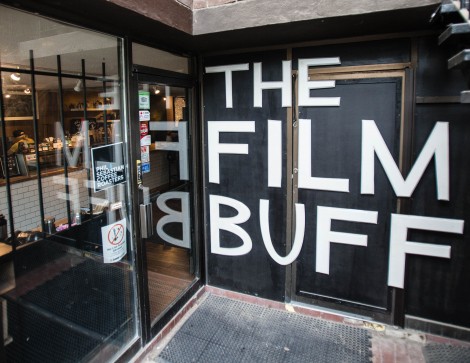The only thing larger than The Film Buff’s 30,000 plus movie library is owner Scott Worsley’s passion for film. Located on Roncesvalles Avenue just north of Queen Street, The Film Buff is half DVD rental store, half ice cream shop, and is home to one of Toronto’s largest physical film collections.
I browse the store for a few minutes before jumping in between customers, hoping to get Worsley’s take on film in the age of digital access media. Initially hesitant, Worsley opens up to me on combating digital media outlets like Netflix, as well as the apparent decline of film, and film appreciation, that are obstacles for film stores today.
“People don’t search out things of merit anymore. They search out things because of their convenience,” Worsley says bluntly. He is well aware and is the first to admit that stores like his are struggling to stay afloat, but argues that the digital movement isn’t the only adversary they face.
As early as the 40s, film has transitioned between periods of greatness and periods of mediocrity. It lost momentum in the ’60s, saw a huge resurgence in the 70s and 80s, and dipped again in the mid 2000s. Today, films don’t garner the same respect that Worsley often noted in years past. “It’s not just us,” he points out. “You go to the Cineplex and look up at the walls and it’s the same thing there: documentaries can’t get made, foreign films don’t get distributed in North America anymore…there just isn’t any market anymore.”
This decline can be attributed, at least in part, to the vast amount of media products that vie for our attention. The onslaught of various forms of entertainment such as video games, TV shows, and televised sports, has allowed for various distractions — removing film from the spotlight.
Of course, there’s still a crowd of film lovers who seek out stores like The Film Buff for quality content, but the increasing number of casual viewers opting for instant, digital gratification make sustainability a challenge. Worsley explains, “[In the past] you could strike a balance. By renting out Jackass 35 times, you could really build a deep big catalogue because you had this mainstream product that was just churning money.”
Now, the casual entertainment seeker who came in for Jackass is on their computer on a Tuesday night, turning to Netflix in order to watch Daredevil. “We still have our customer base here who still gravitate towards quality, but what we don’t do anymore is serve that entertainment seeker.”
If cinematic apathy serves as only one trial that video stores face, then what does Worsley think of its other, digitalized competition? He’s quick to point out the online catalogues of many streaming services come nowhere close to his own collection, though he harbours no unfair resentment towards the medium. “Netflix does a really good job delivering what they said they would,” Worsley says, “which is entertainment. What they don’t necessarily do is film.”
He goes on to commend digital media for creating what he calls a “much more egalitarian access to digital files.” Worsley points out that cities like Toronto might have hosted a myriad of film options through Queen Video, Suspect Video, and his own store but, “When you go to smaller cities like Barrie, you really aren’t going to find a lot of choice in the Cineplex or the video store. So digital is at least universal in the sense that no matter where you are it’s accessible.”
The future of the video store may be fading to black, but Worsley is content with serving his loyal cinephiles until the credit roll ends. He is glad to have 20 years of movie curation under his belt, and optimistic that the two things he spoke about — cinema apathy and digital media — don’t necessarily need to correlate. “I think digital will catch up,” he tells me. “I think there will be a time where digital does not necessarily have to be so mainstream. I think you’ll find more periphery stuff as time goes by, while fewer options like ours exist.”



